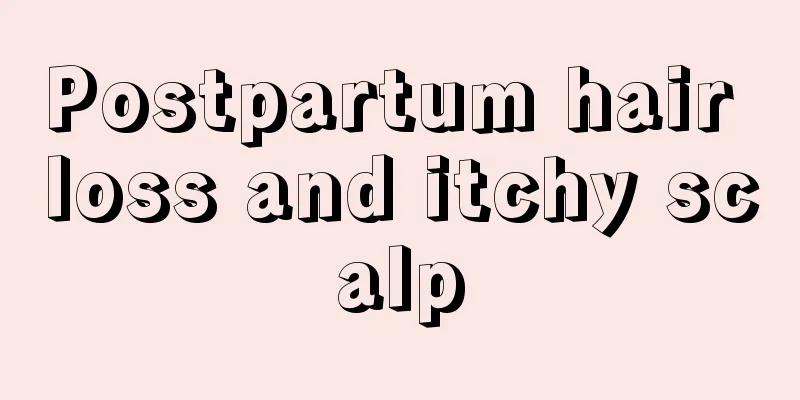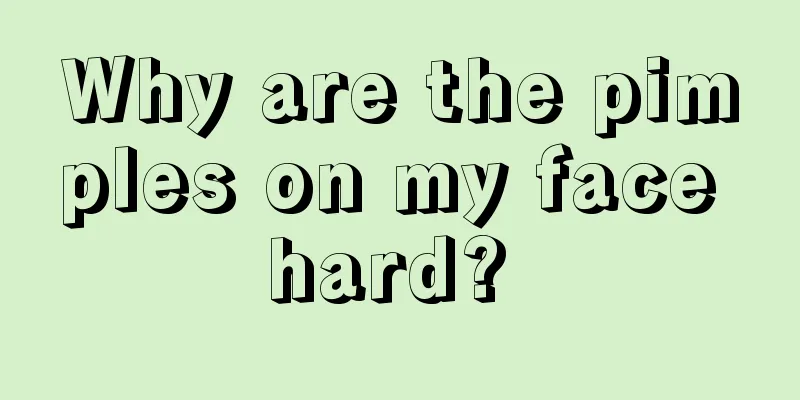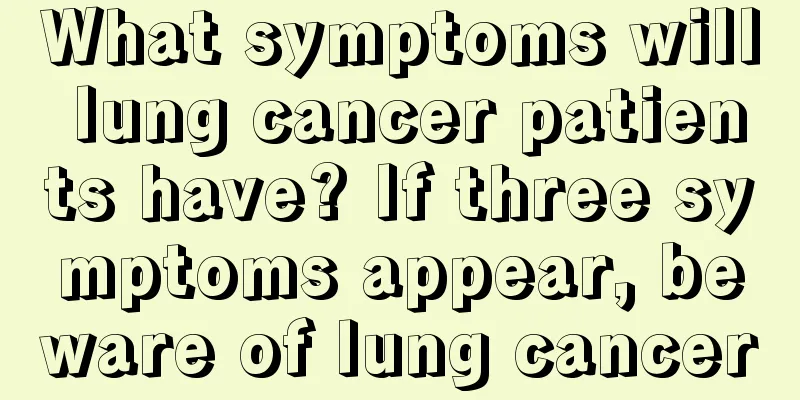Postpartum hair loss and itchy scalp

|
Various symptoms will appear after pregnancy, such as morning sickness, which are normal phenomena, but there may also be abnormal phenomena. For example, some people will experience symptoms of hair loss and itchy scalp after pregnancy. This symptom is abnormal. You should go to the hospital for an examination in time and receive symptomatic treatment to prevent more serious consequences. So what are the causes and treatments of postpartum hair loss and itchy scalp? The main symptoms of hair loss are greasy hair, as if it has been oiled, burnt and frizzy hair, lack of luster, yellowish scales that are difficult to fall off, or grayish white scales flying around, and itchy hair. If it is male hair loss, it is mainly on the front and top of the head. The hairline and temples on the forehead move upwards, and the hair on the front and top of the head becomes sparse, yellow, and soft, eventually making the top of the forehead bald or with some hair. Female hair loss occurs on the top of the head. The hair becomes sparse, but it will not fall out completely in patches. Postpartum hair loss: Postpartum hair loss refers to the abnormal loss of hair in women after giving birth. Postpartum hair is oily and prone to hair loss. In fact, this is caused by the readjustment of hormones in the body. Pregnancy prolongs the dormant period of hair follicles, and the hair loss period is accelerated after delivery. This problem will be more serious if there is great mental stress or the baby cries and refuses to sleep at night. Cause: 1. During pregnancy, the amount of estrogen in the pregnant woman's body increases, making the scalp during pregnancy the most toned period of life. These hairs have a long lifespan and are "serving beyond their service life". Once the child is born, the estrogen content in the body begins to decrease, causing those "overserved" hairs to retire; 2. Mental factors are closely related to hair. Postpartum unhappiness or mental stress from all aspects, including hair loss itself, is a kind of mental stimulation. This cycle continues and hair loss increases. 3. The body's reaction during pregnancy or postpartum nutritional deficiencies affect the normal growth and metabolism of hair, causing the hair follicles to be in a state of shock and leading to hair loss. Conditioning is generally divided into three types: Western medicine, diet therapy and external assistance, Chinese medicine, etc. Western medicine: represented by hair growth capsules. The advantage is that it has some effect in a short time, but the disadvantage is that it has side effects, is highly dependent, and is difficult to eradicate. Diet therapy: black sesame, black beans, vitamin B6, Polygonum multiflorum, etc. External aids: anti-hair loss shampoo, ginger, moxibustion, cypress leaves, etc., these can only bring auxiliary effects, with single efficacy, slow effect, and not obvious. Traditional Chinese medicine: Compared with diet therapy and auxiliary treatment, traditional Chinese medicine has a more stable effect and more obvious results. It can deeply regulate body functions and achieve natural and healthy results. |
<<: What causes the scalp to become hot and itchy?
>>: What to do if scalp hematoma occurs
Recommend
The symptoms of tinea cruris are usually the following:
Tinea cruris is a disease caused by fungal infect...
What are the symptoms of oral ulcers? They need to be treated according to the disease
Oral ulcers are an extremely common disease with ...
Cellular immunotherapy can alleviate complications after radiotherapy for prostate cancer
Radiotherapy is one of the treatments for prostat...
Issues that patients with esophageal cancer should pay attention to in their diet
The prominent symptom of esophageal cancer patien...
8 tips to reduce mobile phone radiation
Mobile phones have become an important tool that ...
Side effects of immunoglobulin
Immunoglobulin G has rich medicinal value because...
What are the dietary treatments for patients with liver cancer and ascites? What are the key points of home care for patients with liver cancer?
What are the dietary treatments for patients with...
Can late stage breast cancer be treated with Chinese medicine?
Breast cancer is a malignant tumor of the breast....
What causes bloody mucus in stool?
If there is blood and mucus in the stool, you sho...
What are the symptoms of recurrence after laryngeal cancer surgery
Every disease will have its symptoms, but if we d...
The order of sensations during nerve recovery
Our nerves are easily damaged. For example, viral...
What are the cosmetic effects of acupuncture?
In today's society, the beauty industry is ve...
What are the nursing measures for prostate cancer
Among patients with chronic prostatitis, accordin...
What plants are good for sleep?
Nowadays, people’s life pressure is gradually inc...
What to do if your neck hurts when sleeping with a cervical pillow
A cervical pillow is a pillow that is beneficial ...









